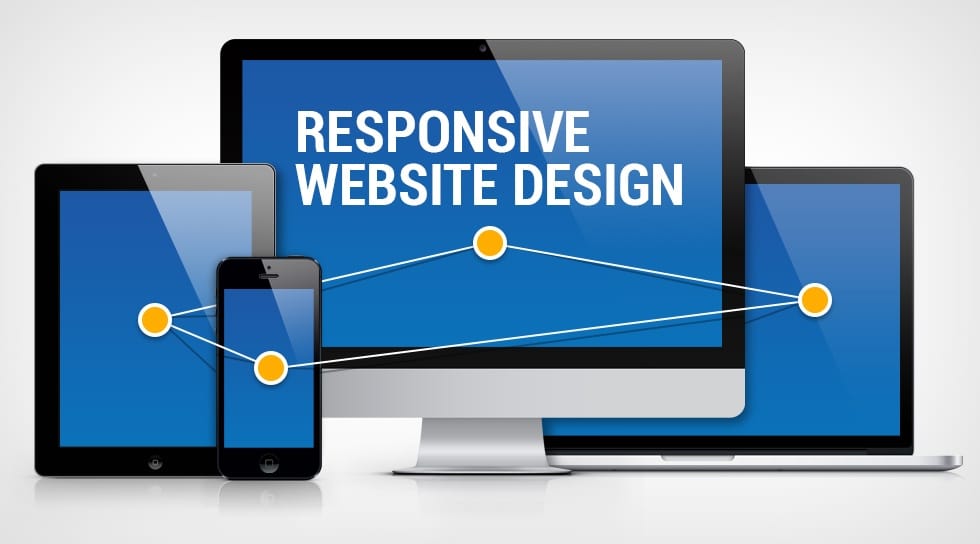Why Responsive Web Design Matters in 2024?
Responsive web design is crucial in 2024 because of the increasing use of mobile devices for internet browsing. With responsive design, websites can adapt to different screen sizes and devices, providing a seamless and user-friendly experience. Businesses and organizations need to ensure that their website is accessible to all users, regardless of the device they are using. In a world where mobile usage is rising, responsive website design services is no longer just a trend but a necessity for success in the digital landscape.
The Importance of Mobile Usage
Mobile-friendly design is essential in today’s digital age. With most internet users accessing websites through smartphones, ensuring your website is optimized for mobile viewing is critical. This means your website should be responsive and easy to navigate on smaller screens, ensuring a seamless user experience. By prioritizing mobile-friendly design, you can reach a wider audience and provide a positive impression of your brand. Don’t let potential customers be turned off by a dated or difficult-to-use website—invest in mobile-friendly design to stay ahead in the digital landscape.

Google’s Mobile-First Indexing
In addition to Google’s preference for mobile-friendly sites, responsive web design provides a better user experience for your visitors. Due to the increasing number of people using the internet on their mobile devices, it’s crucial that your website is easy to navigate and visually appealing across all screen sizes. This will enhance user satisfaction and potentially lead to visitors spending more time on your site and interacting with your content. In 2024, responsive web design is more important than ever for search engine visibility and user experience.
Google has indeed shifted towards mobile-first indexing, which means they prioritize the mobile version of a site for ranking and indexing. This means that if your site isn’t mobile-friendly or responsive, it could significantly impact your visibility on Google. It’s something to consider when optimizing your website for search engines.
User Experience and Conversion Rates
Responsive design is an essential aspect of a successful website. It not only enhances the user experience but also has a direct impact on your bottom line. When users have a seamless and enjoyable experience on your site, they are more likely to engage with your content and take action, such as making a purchase or signing up for a newsletter. This can lead to a significant increase in conversion rates and, ultimately, improved profitability for your business. So, investing in a responsive design is not just about aesthetics – it’s a wise financial decision.
User Experience and Conversion Rates
Responsive design is an essential aspect of a successful website. It not only enhances the user experience but also has a direct impact on your bottom line. When users have a seamless and enjoyable experience on your site, they are more likely to engage with your content and take action, such as making a purchase or signing up for a newsletter. This can lead to a significant increase in conversion rates and, ultimately, improved profitability for your business. So, investing in a responsive design is not just about aesthetics – it’s a wise financial decision.

SEO Benefits
SEO isn’t just about keywords anymore. A responsive design can give your SEO efforts a severe leg up. It reduces bounce rates, increases time on site, and improves overall user engagement – all factors that search engines love.
Yes, that’s absolutely correct. SEO has evolved beyond just keywords. A responsive design is now crucial for boosting SEO efforts. It not only improves user experience but also positively impacts search engine rankings by reducing bounce rates, increasing time on site, and promoting overall user engagement. This is why having a responsive design is essential for any website looking to improve its SEO performance.
Future-Proofing Your Website
Technology moves fast, and new devices pop up all the time. A responsive design helps your site stay relevant, no matter what gadget comes next. It’s like giving your website a superpower to adapt to any screen it encounters.
Responsive design is essential for ensuring that your website remains accessible and user-friendly across various devices. By implementing this design approach, your site will be able to adapt to the screen size and resolution of any device, whether it’s a smartphone, tablet, or desktop computer. This not only enhances the user experience but also future-proofs your website against the constantly evolving landscape of technology. Think of it as giving your website the ability to seamlessly adjust to any screen it encounters, ensuring that your content remains easily accessible to all users.

Best Practices for Responsive Web Design
Understanding the basics of coding, such as flexible grids, scalable images, and media queries, can significantly improve your ability to communicate with your web team. It allows you to have a better understanding of creating a fluid experience across different devices. While you don’t need to become a coding expert overnight, having some knowledge of these concepts can be very beneficial.
This ensures users have a seamless and enjoyable experience on any device. Additionally, Google prioritizes mobile-friendly websites, so a responsive design can improve visibility and ranking. In today’s digital age, responsive web design services in mumbai is a must-have for any business or organization looking to stay competitive and relevant.
Case Studies and Examples
Responsive design is a crucial component for creating a positive user experience across various devices. By looking at successful brands like Airbnb and Etsy, we can see how effective responsive designs can be both functional and aesthetically pleasing. Our goal is to achieve this gold standard of user-friendly and visually appealing design for our own platform.
Conclusion
Responsive web design is crucial in 2024 because of the increasing importance of mobile usage, Google’s mobile-first indexing, the impact on user experience and conversion rates, SEO benefits, and future-proofing your website. By following best practices for responsive web design and learning from case studies and examples, you can ensure that your website is optimized for the mobile experience and set up for success in the future.
In 2024, responsive web design isn’t just a nice-to-have – it’s a must-have. It’s about creating an experience that’s seamless, regardless of how your audience accesses your site. So, are you ready to make your website responsive visit https://techvizo.com/ ? Trust me, your future self (and your customers) will thank you!
FAQ?
In 2024, responsive web design isn’t just a nice-to-have – it’s a must-have. It’s about creating an experience that’s seamless, regardless of how your audience accesses your site. So, are you ready to make your website responsive visit https://techvizo.com/ ? Trust me, your future self (and your customers) will thank you!
Why is mobile usage significant?
Mobile usage is important because it allows us to stay connected and access information on the go. It helps us keep in touch with friends and family, stay updated on news and events, and even manage our finances and work remotely.
How has mobile usage changed the way we live and work?
Mobile usage has revolutionized the way we live and work by making communication and information more accessible than ever before. It has allowed for flexible work arrangements, increased productivity, and enhanced convenience in our daily lives.
What are some potential drawbacks of excessive mobile usage?
Excessive mobile usage can lead to issues such as decreased face-to-face interaction, addiction to social media, and possible adverse effects on mental and physical health. It’s essential to find a balance and use mobile devices responsibly.
How can mobile usage benefit businesses and organizations?
Mobile usage can benefit companies and organizations by allowing for better communication with customers, increased efficiency in operations, and the ability to reach a wider audience through mobile marketing and apps.
What are some tips for responsible mobile usage?
Some tips for responsible mobile usage include setting limits on screen time, taking breaks from devices, and being mindful of how and when we use our mobile devices. It’s essential to prioritize real-life interactions and take care of our mental and physical well-being.


